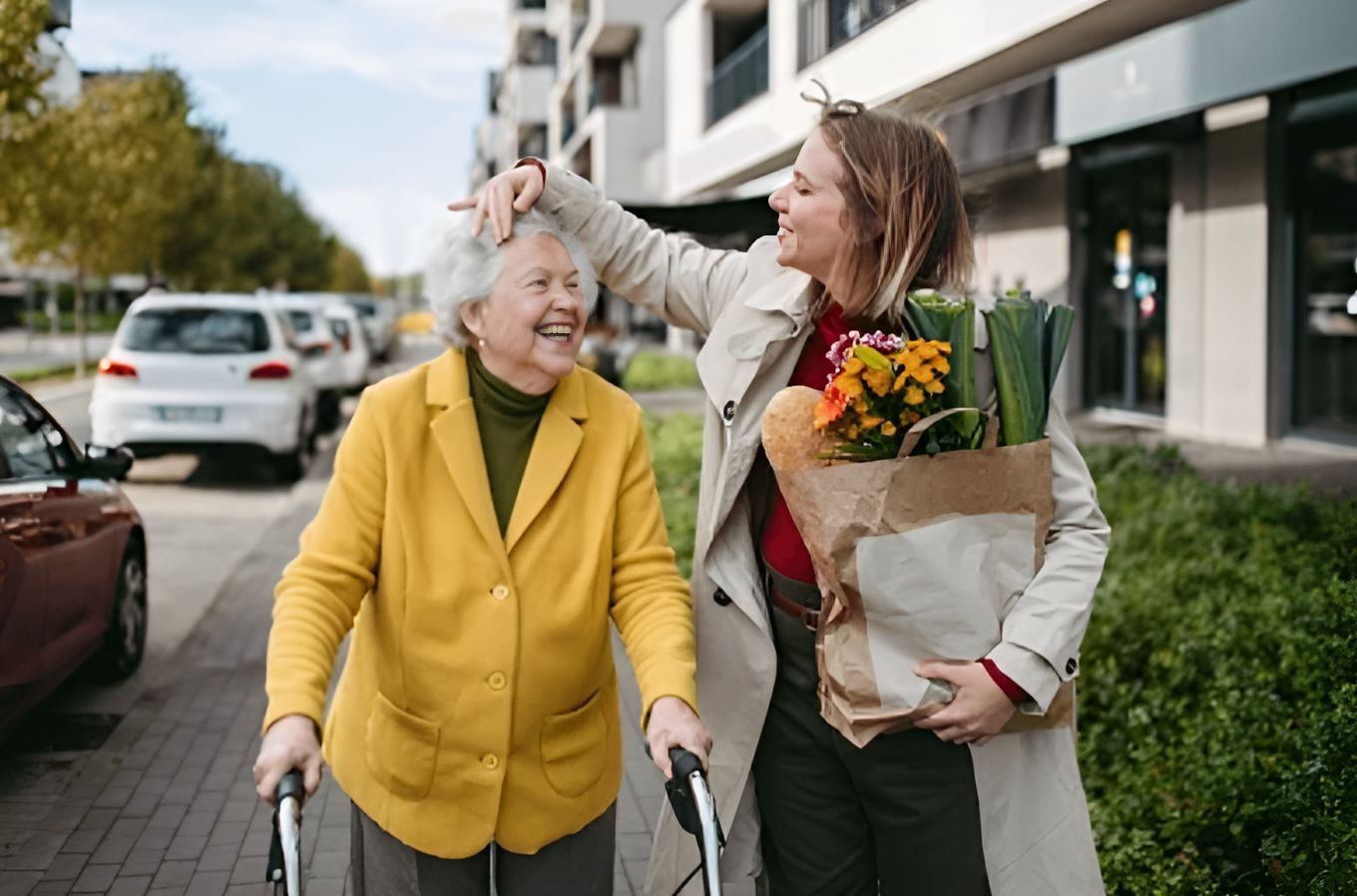Selecting the right caregiver for your loved one is a crucial decision that can significantly impact their well-being and quality of life. The process requires careful consideration of various factors to ensure that your loved one receives the best possible care.
Key elements to consider include assessing the specific needs of your loved one, whether they require medical assistance, companionship, or help with daily activities. It's essential to conduct thorough background checks and interview potential caregivers to gauge their experience, credentials, and compatibility with your loved one.
Additionally, seeking recommendations from trusted sources and utilizing reputable caregiver agencies can provide added peace of mind. By taking a thoughtful and methodical approach, you can find a caregiver who not only meets the necessary qualifications but also fosters a positive and supportive environment for your loved one.
Assessing Your Loved One's Care Needs
Determining the specific care needs of your loved one is paramount to ensuring they receive the appropriate level of support. This assessment involves a comprehensive evaluation of various aspects of their daily life and health status.

Physical Needs
Evaluate your loved one's physical health, focusing on their mobility, ability to perform daily tasks, and any chronic health conditions. Consider whether they require assistance with activities such as bathing, dressing, eating, and medication management. Understanding these needs will help determine if they need a caregiver with medical training or general assistance.
Emotional and Social Needs
Emotional and social well-being are crucial for maintaining a high quality of life. Assess whether your loved one feels lonely or isolated and if they need companionship to participate in social activities. A caregiver who can provide emotional support and engage them in meaningful activities can greatly enhance their overall happiness.
Cognitive Needs
Cognitive health is another critical area to examine, especially for those with conditions like dementia or Alzheimer's disease. Identify any signs of memory loss, confusion, or difficulty making decisions. This will help you decide if they need a caregiver with specialized training in handling cognitive impairments.
Environmental Assessment
The living environment plays a significant role in your loved one's safety and independence. Conduct a thorough review of their home to identify potential hazards such as stairs, slippery floors, or inadequate lighting. Determine if home modifications are necessary or if a more accessible living arrangement is required.
Medical Needs
Consider any medical requirements, including regular doctor visits, medication schedules, and the need for medical equipment. A caregiver with the right medical expertise can ensure that these needs are met efficiently and safely.
By systematically assessing these areas, you can create a detailed profile of your loved one's care needs. This will serve as a foundation for finding a caregiver who can provide the appropriate level of care and support.
Determining the Level of Medical Assistance Required
Understanding the precise level of medical assistance your loved one requires is crucial for their health and safety. This involves evaluating their medical history, current health status, and the complexity of their medical needs.
Chronic Conditions Management
If your loved one has chronic conditions such as diabetes, heart disease, or arthritis, it's important to assess how these impact their daily life. Determine the frequency of medical interventions needed, such as blood sugar monitoring, administering insulin, or managing pain. A caregiver with specialized knowledge in managing these conditions can provide the necessary care and support.
Medication Administration
Many individuals, especially seniors, rely on a regimen of medications to maintain their health. Assess your loved one's ability to manage their medications independently. This involves understanding the types and frequencies of medications taken, potential side effects, and the importance of adherence to the prescribed schedule. A caregiver with experience in medication administration can ensure medications are taken correctly and on time.
Post-surgery and Rehabilitation Care
If your loved one is recovering from surgery or undergoing rehabilitation, evaluate the level of post-operative care they require. This may include wound care, physical therapy exercises, and assistance with mobility. A caregiver with expertise in post-operative and rehabilitative care can facilitate a smoother recovery process.
Medical Equipment Usage
Some medical conditions necessitate the use of special medical equipment, such as oxygen tanks, feeding tubes, or mobility aids. Determine the extent to which your loved one is dependent on such equipment and their ability to operate it safely. A caregiver skilled in handling medical equipment can provide the right support and ensure proper usage.
Monitoring and Emergency Response
For individuals with conditions that require constant monitoring, such as heart conditions or respiratory issues, it's important to have a caregiver who can effectively monitor vital signs and recognize signs of distress. They should be trained to respond promptly to medical emergencies and know when to seek professional medical help.
By thoroughly evaluating these aspects, you can determine the level of medical assistance your loved one needs. This helps ensure they receive the appropriate care from a qualified caregiver, enhancing their well-being and reducing the risk of medical complications.

Understanding the Importance of Companionship in Caregiving
Emotional Support
Emotional support is a fundamental aspect of caregiving that significantly impacts the well-being of the individual receiving care. A caregiver who provides companionship helps alleviate feelings of loneliness and isolation, which are common among seniors and those with chronic illnesses. Regular interaction, empathic listening, and shared activities can foster a sense of security and connection, contributing to improved mental health.
Enhancing Quality of Life
Companionship is vital for maintaining a high quality of life. Engaging in social activities, hobbies, and daily routines with a caregiver can bring joy and a sense of purpose to your loved one's life. Simple activities like playing games, gardening, or going for walks can stimulate their mind and body, enriching their daily experiences.
Cognitive Stimulation
For individuals with cognitive impairments like dementia, regular mental engagement is crucial. A compassionate caregiver can offer cognitive stimulation through activities designed to challenge and engage the mind. These might include puzzles, reading, memory games, and conversations that encourage critical thinking. Such interactions can slow cognitive decline and enhance mental sharpness.
Building Trust and Rapport
A caregiver who acts as a companion builds a trusting relationship with your loved one, which is essential for effective care. This trust fosters open communication, allowing the caregiver to better understand and respond to the emotional and physical needs of the individual. A strong rapport can make the caregiving process smoother and more rewarding for both parties.
Encouraging Social Interaction
Encouraging and facilitating social interaction with family, friends, and community members is another critical role of a caregiver. They can help your loved one attend social events, family gatherings, or community activities, ensuring they remain actively involved in their social circles. This not only broadens their social network but also supports mental and emotional well-being.
Reducing Caregiver Burnout
Companionship is not just beneficial for the individual receiving care, but also for the primary family caregivers. When a secondary caregiver provides companionship, it can offer respite and reduce burnout for family members. Knowing that a trusted companion is providing care can relieve stress and allow family caregivers to take necessary breaks.
Understanding the profound impact of companionship in caregiving underscores its importance as a component of holistic care. By prioritizing emotional and social interaction, caregivers can significantly enhance the overall well-being of those they care for, fostering a supportive and nurturing environment.
Evaluating Help Needed for Daily Activities and Routines
Assessing Mobility and Physical Capabilities
Assess your loved one's ability to move independently. This includes walking, transferring from bed to chair, and navigating stairs. If they face difficulties, a caregiver can provide the necessary support to prevent falls and ensure safe movement within the home.
Personal Hygiene and Grooming
Personal hygiene and grooming are essential for maintaining health and dignity. Determine how well your loved one manages personal care tasks such as bathing, dressing, grooming, and using the toilet. A caregiver can assist with these activities, ensuring they are completed regularly and safely.
Meal Preparation and Nutrition
Proper nutrition is vital to overall health. Evaluate whether your loved one can prepare meals and follow a nutritious diet. If they struggle with cooking or grocery shopping, a caregiver can help with meal planning, preparation, and ensuring dietary needs are met.
Household Chores and Maintenance
Keeping a clean and safe living environment is important for physical and mental well-being. Assess their ability to manage household tasks such as cleaning, laundry, and home maintenance. A caregiver can perform these chores, allowing your loved one to reside in a comfortable and orderly home.
Medication Management
Adherence to medication schedules is crucial for those on prescribed treatments. Ensure your loved one can manage their medications, understand dosages, and recognize potential side effects. A caregiver can organize medications, provide reminders, and monitor their administration to prevent missed or incorrect dosages.
Transportation and Errands
Transportation can be a significant challenge for those with limited mobility or cognitive issues. Consider whether your loved one can drive or use public transportation safely. A caregiver can provide transportation to medical appointments, and social events, and run essential errands, promoting independence and social engagement.
Financial Management
Managing finances involves bill payments, budgeting, and handling bank transactions. Evaluate your loved one's capacity to manage their finances independently to ensure they are not vulnerable to financial exploitation or neglect. A caregiver can assist with or oversee these tasks, ensuring financial responsibilities are handled appropriately.
By carefully evaluating the help needed for daily activities and routines, you can create a comprehensive care plan tailored to your loved one's specific needs. This ensures they receive the proper support to lead a fulfilling and safe life.
Understanding the Different Types of Caregivers Available
Family Caregivers
Family caregivers are typically unpaid individuals, often family members or friends, who provide care to someone with a chronic illness, disability, or just the natural challenges of aging. They play a vital role in the lives of their loved ones by offering emotional support, managing household tasks, assisting with personal care, and coordinating medical appointments. Despite their dedication, family caregivers may require additional respite to avoid burnout and ensure they can continue providing the best possible care.
Professional Caregivers
Professional caregivers are trained and paid professionals who offer a range of services to individuals in need of assistance. They can be hired through home care agencies or as independent caregivers. Their expertise allows them to handle tasks such as bathing, dressing, meal preparation, medication management, and light housework. Professional caregivers bring a level of proficiency and experience that can be invaluable, particularly for more intensive care needs.
Home Health Aides (HHAs)
Home Health Aides (HHAs) typically have more specialized training compared to general caregivers. They often provide personal care and health-related services under the supervision of a registered nurse or other healthcare professional. HHAs can perform tasks like checking vital signs, assisting with mobility exercises, and providing basic medical care, such as wound dressing. This makes them suitable for individuals requiring consistent medical attention at home.
Certified Nursing Assistants (CNAs)
Certified Nursing Assistants (CNAs) have completed a formal training program and are certified to provide hands-on healthcare in various settings, including at home. They can assist with more complex medical needs, such as catheter care, administering medications, and monitoring patient health. Their certification ensures a high standard of care and adherence to medical guidelines, offering peace of mind to families with medically fragile loved ones.
Respite Care Providers
Respite care providers offer temporary relief to primary caregivers by taking over caregiving duties for a short period. This service can be provided at home, in a daycare center, or in a residential facility. Respite care is essential for preventing caregiver burnout and allowing primary caregivers to take breaks, attend to personal matters, or simply rest. It ensures that the individual receives continuous care even when the primary caregiver is unavailable.
Companionship Caregivers
Companionship caregivers focus on offering social interaction and emotional support rather than medical or personal care. Their role is to engage clients in activities that promote mental well-being, such as playing games, discussing current events, or taking walks. This type of caregiver is especially important for individuals who are socially isolated or dealing with mild cognitive impairments. Their presence can significantly improve the quality of life for those they care for.
By understanding the different types of caregivers available, you can better navigate the caregiving landscape and select the most appropriate support for your loved one’s unique needs. Each type of caregiver brings distinct skills and services, ensuring a comprehensive approach to care.

Contact The Care Concierge of New England
Finding quality help for a loved one can be a confusing, frustrating maze. If your loved one needs Assisted Living or Memory Care and you don't know where to turn, the Care Concierge can help.
The Care Concierge is a Senior Referral & Placement agency focused on helping seniors find the best Assisted Living or Dementia Support fit. We serve all of Rhode Island and select parts of Massachusetts and Connecticut. We are open 24/7, so if you need help finding a solution fast, the Care Concierge is at your service.
We help seniors and their families navigate the ever-changing world of senior care with knowledge, experience, and a personal touch. Don't hesitate to reach out to us
for expert guidance tailored to your loved one's unique needs. Contact The Care Concierge of New England today and ensure your loved one receives the best possible care.


